This Major Movie Theater Chain Just Announced It’s Closing All Locations

Every industry has been affected by the coronavirus pandemic, and the lockdowns the virus brought with it. But some have been hit harder than others, including entertainment venues, from stadiums to concert halls to movie theaters. And now, one chain will be shuttering for good. Regal Cinemas is officially closing all of its locations in the U.S. and U.K., according to a recent statement from Regal’s parent company, Cineworld Group. Cineworld Group, the second largest global movie theater chain, announced on Monday that its 536 stateside Regal Cinemas theaters and 127 Regal and Picturehouse Cinemas in the U.K. would be ceasing operations as soon as Oct. 8, according to CNN.
The closures were announced on Monday, Oct. 5, with the company releasing a statement noting that Cineworld had limited cinematic offerings for its customers, due in large part to COVID-related film production delays. However, just one day prior, the chain announced that it had not made any official decisions regarding closures. “We can confirm we are considering the temporary closure of our U.K. and U.S. cinemas, but a final decision has not yet been reached. Once a decision has been made we will update all staff and customers as soon as we can,” Cineworld tweeted on Oct. 4.
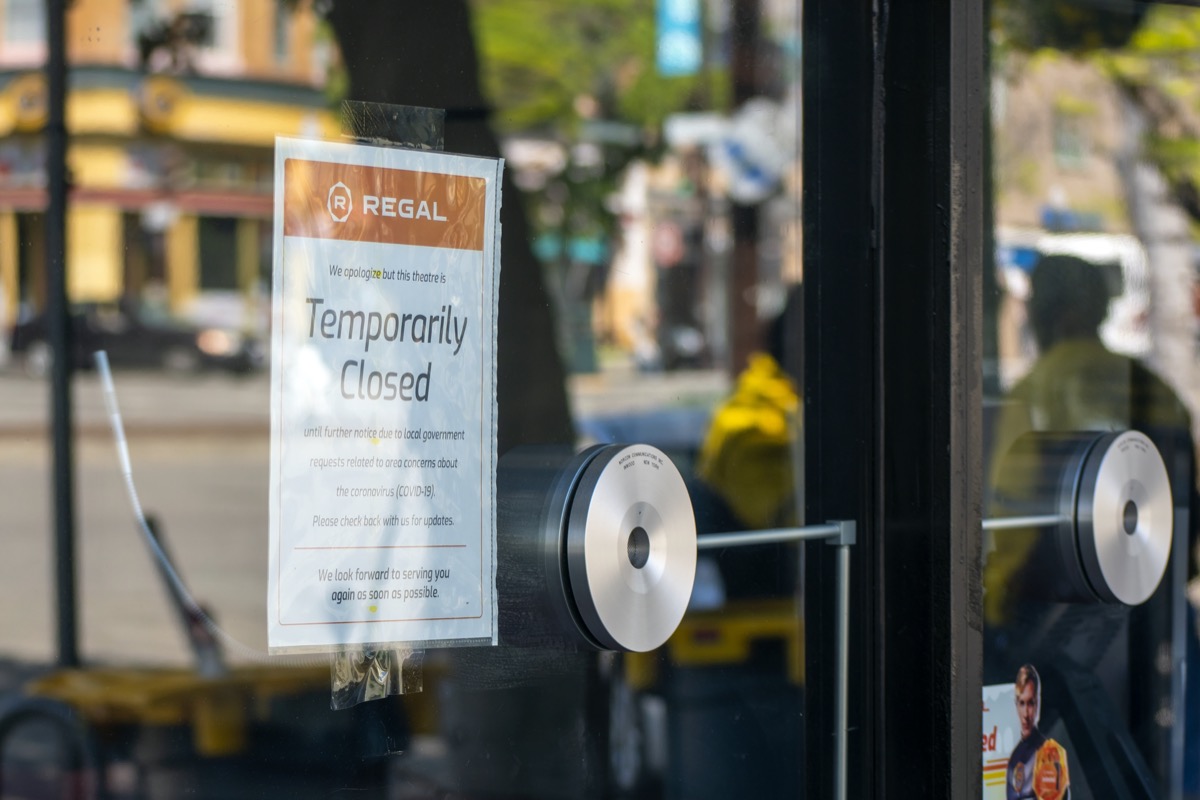
The final nail in the chain’s coffin was the decision to push back the release date of the upcoming James Bond film No Time to Die, which won’t hit theaters until spring 2021—a year after its initial anticipated release date of Apr. 10, 2020.
“When the Bond decision arrived, a decision that followed numerous delays of other movies, we had to change the direction, close the cinemas and wait for a situation where the studios will be able to present a solid release schedule,” Cineworld CEO Mooky Greidinger told Deadline.
While Greidinger said that the chain will open once again when movie studios resume regular production, the decision to close—even temporarily—will have an undeniable impact on Cineworld’s 45,000 employees. Greidinger confirmed to Deadline that the majority of Cineworld’s employees will be either furloughed or forced to take unpaid leave in light of the closures, noting that the decision to do so had been made “with a really heavy heart.”
Unfortunately, many Cineworld employees claim that they only discovered they were losing their jobs after seeing reports of the company’s closure in the news.
“Workers have been left out of discussions that should’ve included our voices. However, in this case it goes beyond belief. To find out you may no longer have a job from the media is awful,” Cineworld Action Group, which represents the company’s employees, tweeted on Oct. 3. They added, “There has been no consultation with staff whatsoever.”
Cineworld isn’t the only movie chain that’s fallen on hard times since the pandemic began, however; in June, AMC—the world’s largest movie theater chain—announced that it was “generating effectively no revenue,” and had lost as much as $2.4 billion in the first quarter of 2020 alone, opting to cut executive salaries and furlough employees to stay afloat. Of course, it’s not just movie theaters that are shuttering amid the pandemic, either. Read on to discover which other huge chains have been forced to make major changes due to COVID-19. And for another global company that’s been affected, find out which Popular Clothing Chain Just Announced It’s Closing 250 Stores.
1
Belk
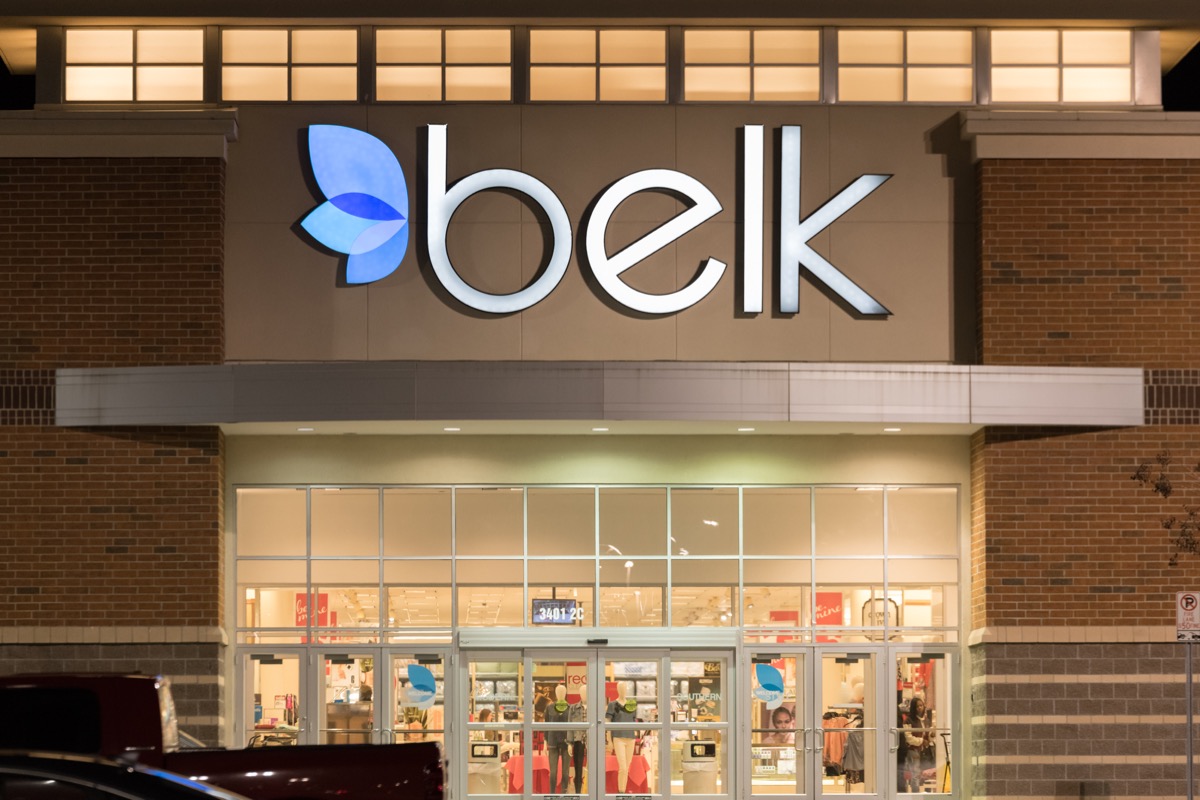
Regional department store Belk, which operates 291 locations throughout the Mid-Atlantic and South, has fallen on hard times since the pandemic began, leading many to believe its stores may not be long for this world. According to a Sept. 30 report from Forbes, the store’s vendors say they’re not being paid and their contacts at the company are no longer responding to their communications. The company has already undergone two rounds of layoffs since early 2020. And for another beloved brand that’s having financial issues, check out Disney’s Latest Announcement Shows There Could Be Trouble Ahead.
2
Nordstrom
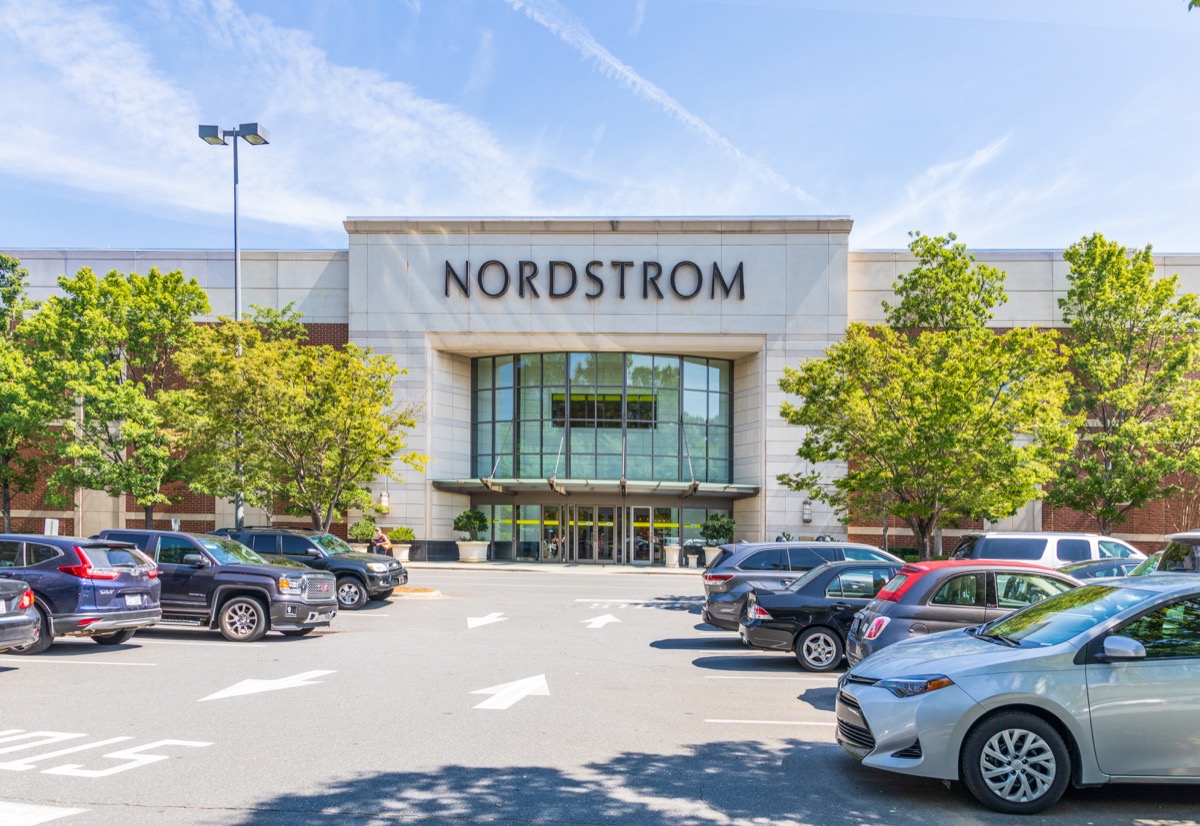
Nordstrom’s losses amid the coronavirus pandemic have led to a number of closures for the beloved brand. In May, the department store announced that 16 of its stores would cease operations, and all three of its Jeffrey stores, which specialized in high-end designer goods, would close as well.
3
Stein Mart
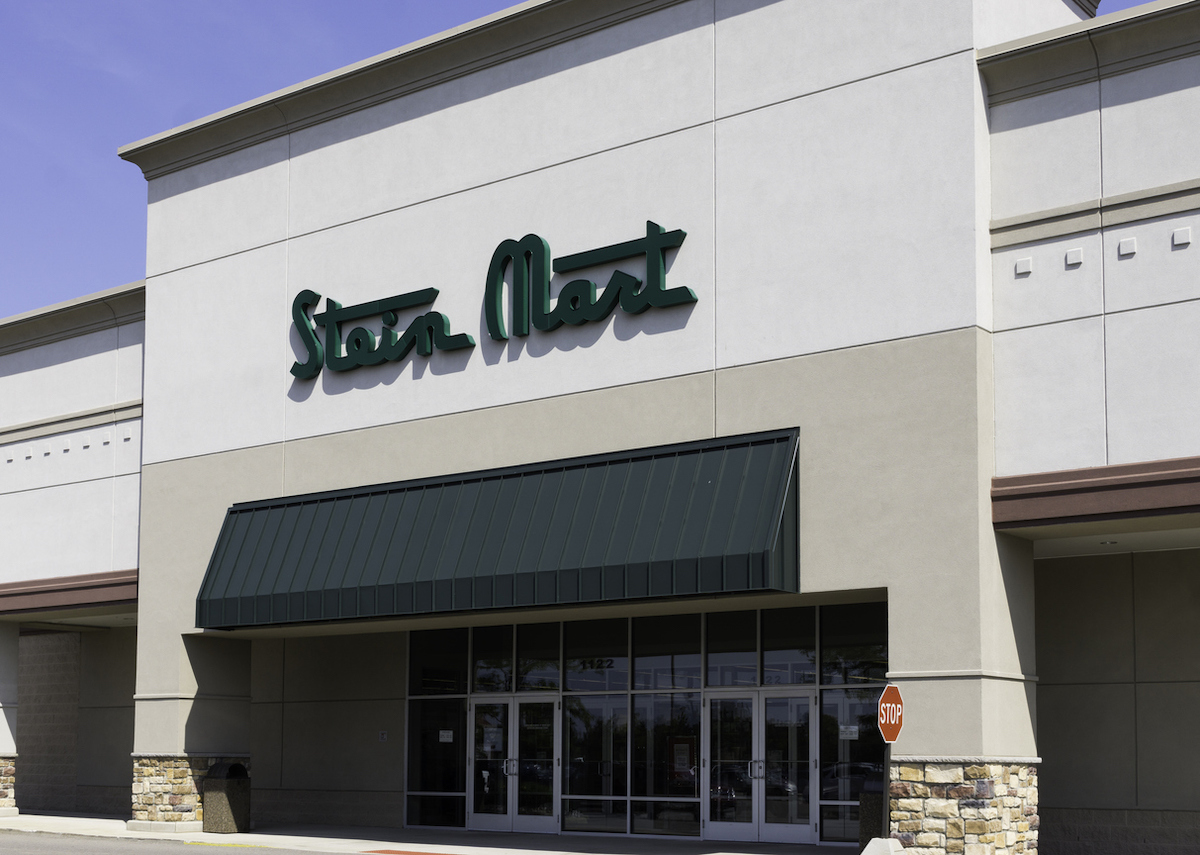
A month after filing for Chapter 11 bankruptcy protection, discount department store Stein Mart announced in September that it would be closing all 279 of its stores. While the store’s former retail locations are already being marketed to new clients, the chain is still in the process of selling off its remaining goods online, offering sales up to 60 percent off. And for more news delivered directly to your inbox, sign up for our daily newsletter.
4
Century 21
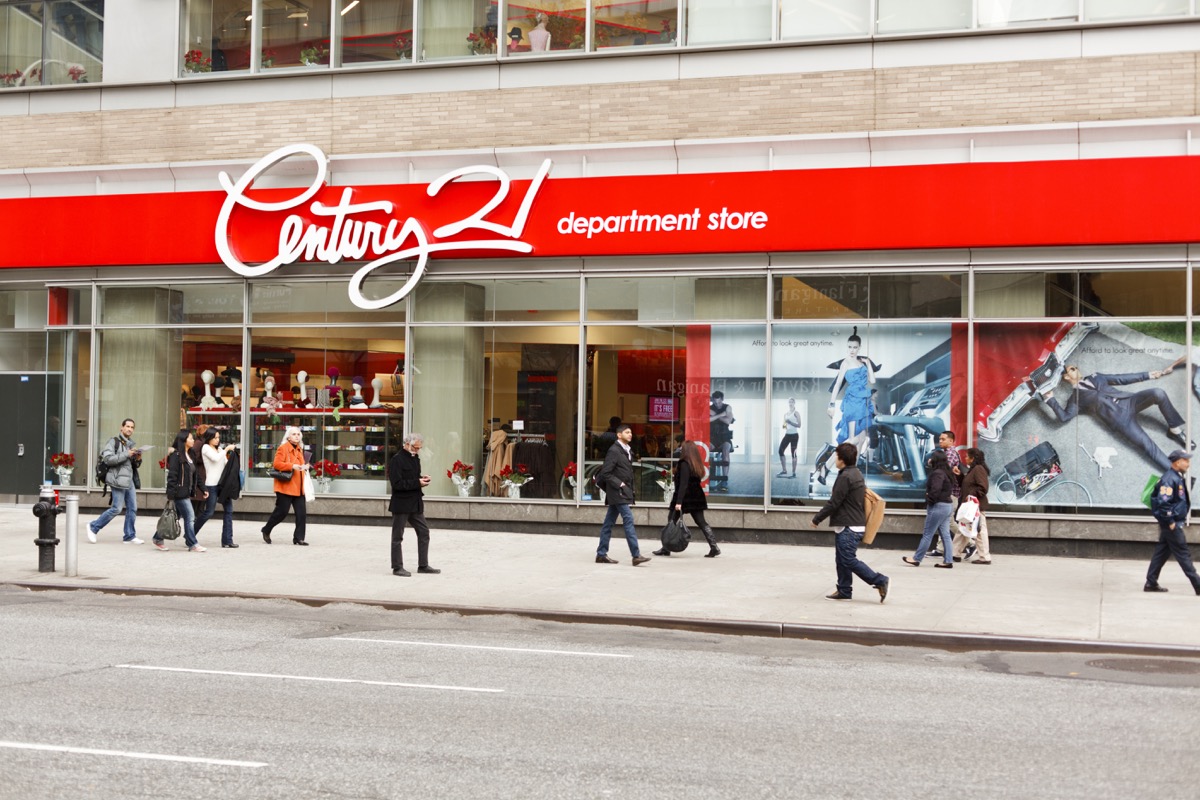
Century 21, a discount department store that operated 13 locations in New York, New Jersey, and Pennsylvania, announced in September that it would be closing all of its locations for good.
“Our insurers, to whom we have paid significant premiums every year for protection against unforeseen circumstances like we are experiencing today, have turned their backs on us at this most critical time,” said Century 21 co-CEO Raymond Gindi in a statement.
5
Bed Bath & Beyond
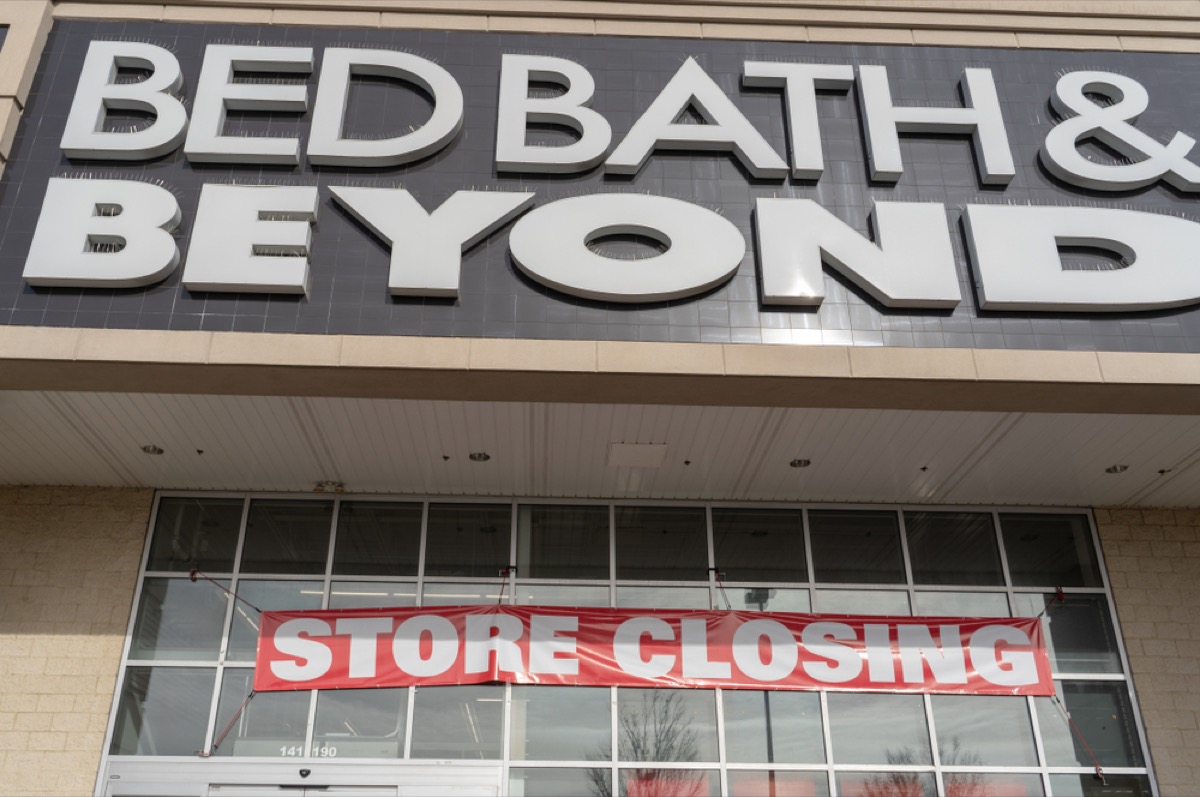
While many Bed Bath & Beyond stores will remain open, the housewares giant announced that it would be closing approximately 20 percent of its locations, or 200 stores in total, in the next two years.
The company’s CEO, Mark Tritton, announced in July that the combination of the COVID-19 pandemic and the upswing of online purchasing had precipitated the change. And for more insight into the changing retail landscape, This Beloved Home Store Is Closing More Than Half of Its Locations.
6
Pier 1

Pier 1 filed for bankruptcy in May and is currently working to close all of its 540 stateside stores by the end of October. “The challenging retail environment has been significantly compounded by the profound impact of COVID-19… requiring us to wind down,” explained CEO and CFO Robert Riesbeck in a statement.